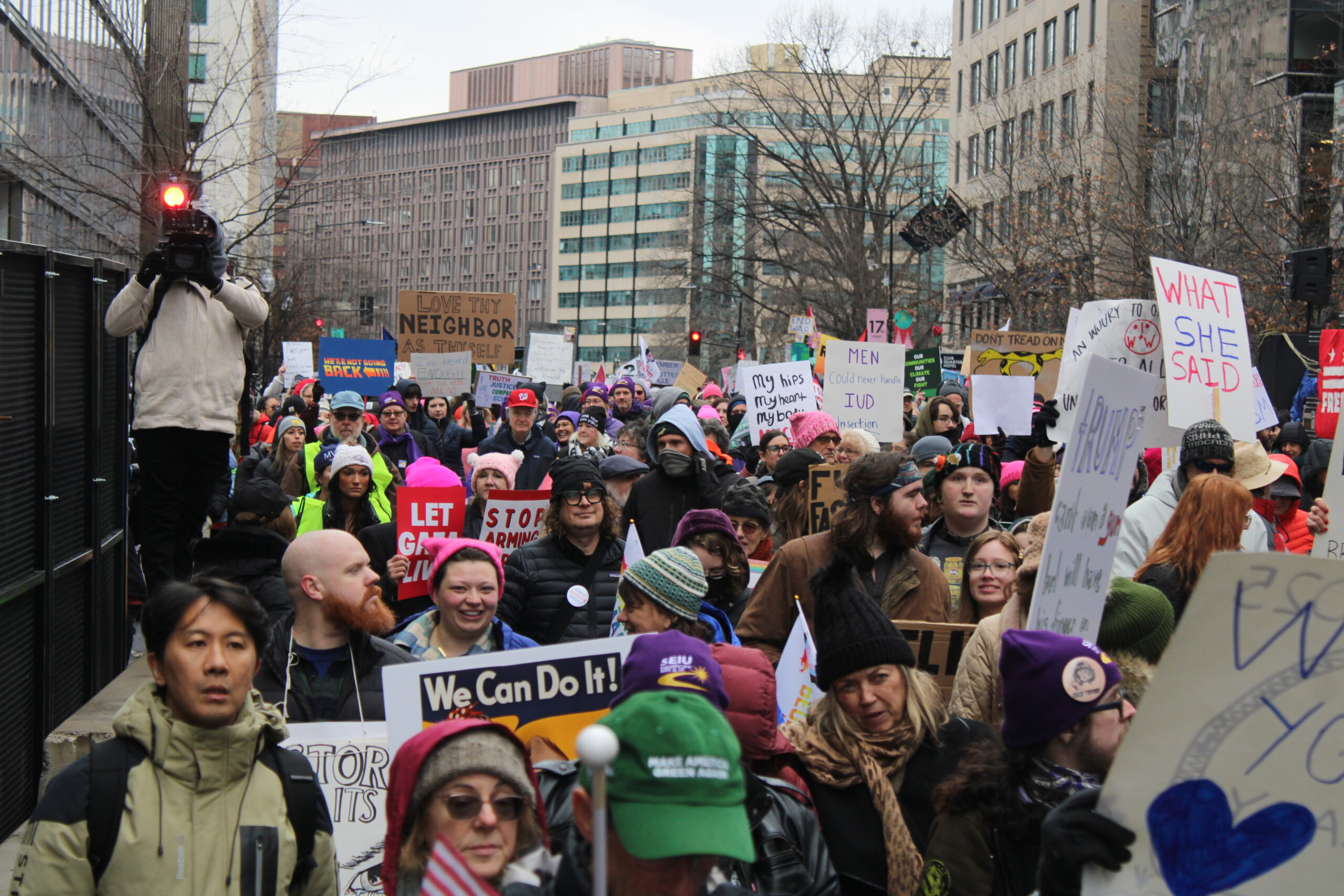WASHINGTON, D.C. – Activists from across the country are gathering in the nation’s capital this weekend, some celebrating the upcoming inauguration of President-elect Donald Trump while others are pledging to resist his policies.
Saturday’s demonstrations united progressives in concern over the future despite the divisions that led to Democratic losses in the 2024 presidential election. Sunday will feature a pro-Trump victory rally at Capital One Arena, offering a contrast to the protest events.
“To everyone here, the division needs to stop. We are stronger together,” Nee Nee Taylor, executive director of Harriet’s Wildest Dreams, declared to the protesters gathered around the Lincoln Memorial.
These gatherings are in anticipation of Monday’s inauguration of Trump, an event that is moving indoors due to predictions of bitter cold weather. But the frigid temperatures haven’t deterred thousands of people from filling the streets of Washington this weekend, standing firm in their commitment to their cause.
The People’s March, rebranded from the Women’s March in 2017, aimed to unite a broad coalition of individuals. Marchers, gathering from separate rallies focused on different causes, converged at the Lincoln Memorial to unite women, LGBTQ+ people, immigrants and other marginalized groups under a shared banner of resistance.
Candace Mosely, a Washington resident, said she often shows up for marches in the area, but noted that today’s event gave her hope for a larger purpose.
“It’s great that someone put together this march that brings together all of these topics,” she said, “and bring together everyone who’s trying to make the world better, and hopefully fight together.”
With an LGBTQ+ flag draped across his chest, Julien Freville carried his 29-month-old son, Orson, to the protest. Freville said it was important to show him how powerful and positive a protest could be.
“We’ve lost a lot of hope lately,” Freville told Capital News Service. “To be here with people who share and defend values like mine is very empowering and gives me hope.”
Dawn Fichtner, said that her reason for attending the protest was her disbelief that the country would elect a “convicted felon” to office. She said the march demonstrates there are “still people who think that American democracy is worth fighting for.”
“American democracy will triumph over this,” said Fichtner.
View this post on Instagram
Mary Pellicano and Lorie Masters marched side by side at the protest. Pellicano held a sign that read, “Hate Will Never Make America Great.”
“I’m here for my children,” said Pellicano.“They need to see me model resistance, and standing up for what’s right, and when things are not right, you need to speak up and not be afraid.”
Masters said her activism began in 2000, following the Supreme Court’s intervention in the presidential election.
“At that point, I thought it was really critical to get involved in the political process and make my voice heard,” said Masters. “Since then, there are so many issues that are important to me – women’s rights, civil rights, and human rights, and also I’m a resident of D.C. and we don’t have the rights every other American has.”
Cara Fortner, a Unitarian Universalist minister from Virginia, marched alongside her 11-year-old daughter, Eleanor, for her daughter’s first protest. During the march, a fellow Unitarian from Florida approached her, recognizing her by the sign she was carrying.
“It is part of our faith to live our faith in the real world,” Fortner said.
The Women’s March, one of the groups behind Saturday’s demonstration, gained recognition for its first event, which drew more than 1 million participants from across the nation after Trump’s first inauguration.
Trump’s first term saw significant reversals on progressive policies, including the Supreme Court’s 2022 Dobbs decision, which overturned Roe v. Wade and ended federal abortion protections. His administration opposed the Equality Act and appointed numerous judges with anti-LGBTQ+ views, cementing a long-term conservative shift in the judiciary.
Despite his contentious record, Trump’s voter base expanded in 2024. He saw increased support from white women, though Black women overwhelmingly opposed him. Activists at the People’s March said they viewed these shifts as a call to action.
“We’re poised to be nimble and to pivot where we need to and to respond to needs as they arise,” Fortner said, “that’s a good feeling.”

